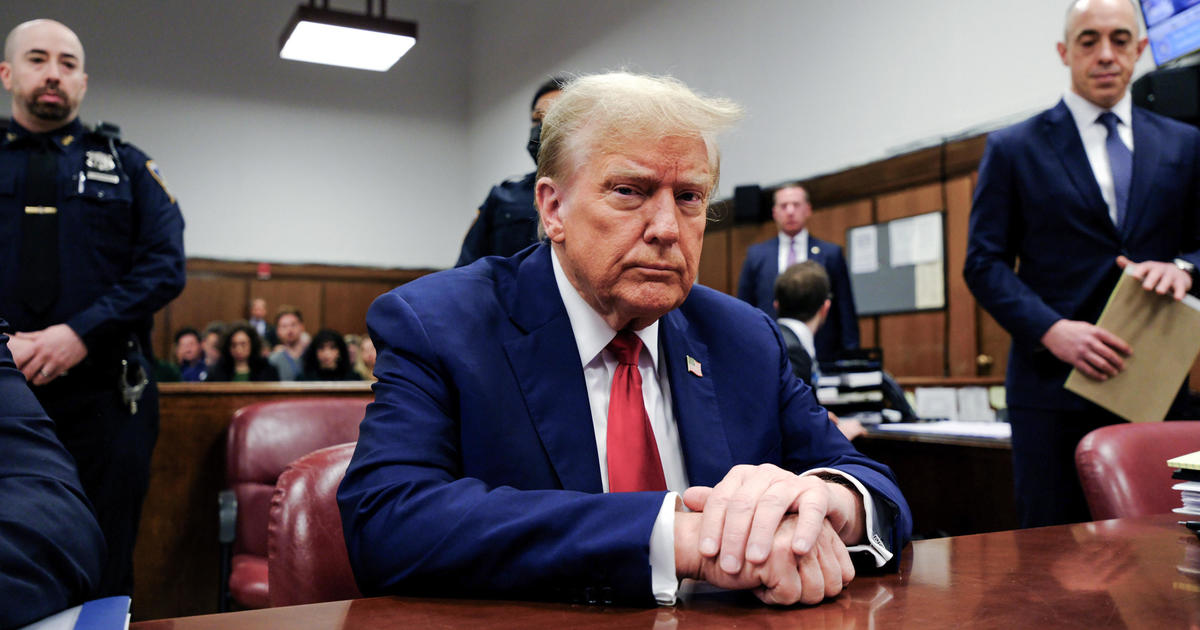Trump's Mexico tariffs may send manufacturers packing -- again
- Mexico was seen as a manufacturing alternative to China because of free trade agreements, until Mr. Trump threatened Mexico with tariffs, too.
- Shifting a manufacturing base to another country can be costly and take months, or much longer, to set up.
- President Trump may be getting U.S. companies to pull production out of China -- but that's unlikely to bring jobs back to the U.S.
- Mixing trade and immigration creates a "molotov cocktail of policy," one manufacturing exec says.
As President Donald Trump's trade war with China intensified last year and U.S. tariffs on imported Chinese goods rose this spring, some companies turned to Mexico as a good alternative location to move production. That shift became even more attractive when the U.S., Mexico and Canada reached a deal last fall to replace the 25-year-old North American Free Trade Agreement.
Now, however, Mr. Trump is threatening to slap tariffs of up to 25% on all Mexican imports, starting at 5% on June 10, unless Mexico changes immigration policies -- and that's creating havoc with companies already shifting production. Some experts said the president's latest threats even put the new U.S.-Mexico- Canada Agreement in jeopardy, upending the stability businesses crave. The USMCA needs to be ratified by legislative bodies in all three countries.
Such a mix creates a "Molotov cocktail of policy," Jay Timmons, president and CEO of the National Association of Manufacturers, said in a recent tweet. That may be especially true for smaller manufacturers or suppliers that have a harder time absorbing costs from the new tariffs -- essentially taxes paid by companies that import goods into the U.S. -- without charging customers more.
"Unpleasantly surprised"
Shifting a manufacturing base to another country can be costly and take months, or much longer, to set up, hire workers and start making products. For smaller suppliers that sell to bigger companies, offering a good price can be key to survival.
Last year, Scottsdale, Arizona-based Universal Electronics, a maker of remote controls, sensing and smart-home software, began moving a "good percentage" of production out of China to avoid the 25% tariff on its products. Some of that production was moved to Mexico, Universal Electronics CEO Paul Arling told investors at a presentation Tuesday. "So last week we were a little surprised -- unpleasantly surprised," Arling told investors.
If the White House does impose these new tariffs on Mexico and the dispute drags on like the China trade war, Universal Electronics may have to shift production to yet another "low-cost, high quality" country like the Philippines or Vietnam, Arling said. Even using a subcontractor to make its products can take months to establish and reach production speeds that match what China offered, he said.
One thing that's highly unlikely: moving production back to the U.S. That's because labor costs here are just too high compared to places like Mexico, China and Vietnam, Arling told investors. Universal Electronics sells its products to a range of bigger companies like DirectTV, ADT and Sony.
"We actually looked at this a few years back. Could we open up a factory in a location here?" Arlin said. The answer: "...you wouldn't be able to compete," he said.
Higher U.S. costs
Last year, manufacturing labor costs in China were estimated at $5.51 an hour versus $4.45 in Mexico and $2.73 in Vietnam, according to Statista. The average goods-producing wage in the U.S. as of April was $23.17 per hour, according to the Bureau of Labor Statistics.
Keeping costs low can be especially crucial for smaller businesses, which are getting hit hard by the Trump tariffs, said Nathan Resnick, CEO of Sourcify, a two-year-old firm that matches small to midsize companies with factories around the globe.
In 2018, about 75% of the factories Sourcify used were China-based. This year, that's down to 60%, Resnick told CBS MoneyWatch.
Previously, most companies weren't talking about moving their production out of China. This year, it comes up in "pretty much every single conversation we have," Resnick said. "And you know, we probably have two dozen conversations a day with different companies."
Can't just pick up
Still, some companies were already starting to shift production out of China because its labor costs were climbing even before the U.S. imposed tariffs. That has boosted competition for expanded space in countries like Vietnam, Malaysia and the Philippines from companies based outside the U.S., too, Resnick noted.
"You can't just pick up a factory, and there are certain products that are very challenging to move outside of China," like watches and sunglasses, he said.
Sourcify and Universal Electronics are hardly alone. GoPro announced just last month that it would proceed with shifting U.S.-bound production to Mexico to avoid the tariffs on Chinese goods -- just days before Mr. Trump's surprise threat to Mexico. GoPro didn't respond to an e-mailed request for comment on its plans if the latest U.S. tariffs take effect
Bearing the pain of tariffs
Tariffs are paid for by the companies that import goods, even when they're from their own factories located overseas. Companies either absorb the tariff costs by cutting expenses -- like jobs -- or pass the higher costs onto their customers, whether they're other companies or American consumers.
Executives like Resnick find Mr. Trump's tweets that erroneously say China or Mexico pay for tariffs mask the pressure on companies. "American consumers should know that it's actually American businesses and the American people that are paying for these tariffs, because these American businesses are the ones paying our government when the product come into port, paying these duties," Resnick said.
"And then they're either having to increase prices, which the American consumers have to pay for, or try to better negotiate with their factories," Resnick continued. "It's putting a lot of pressure on mid-market American businesses."



